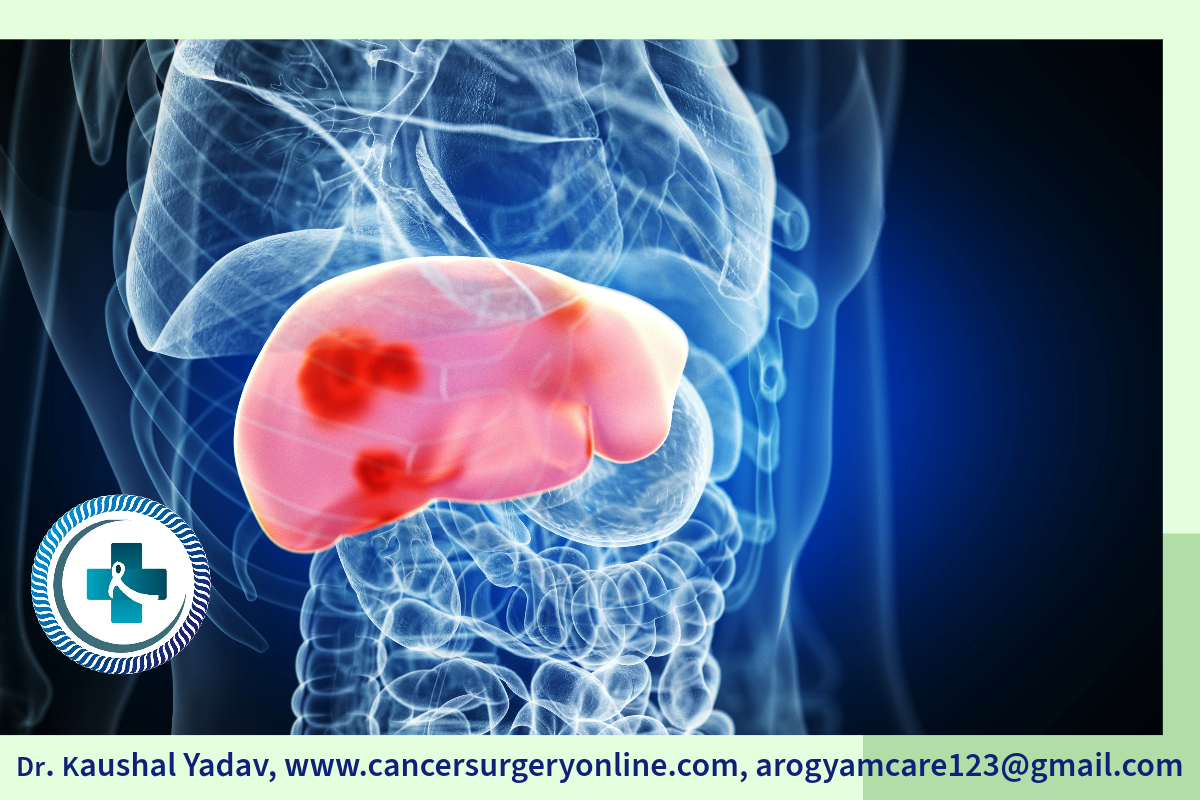Learn about the prevention of liver cancer, including risk factors,...
Read MoreNeed Help?
We are here to help.
“Reach out to us for personalized care that puts your cancer worries to rest – Your journey to healing starts with us!”


Liver is one of the largest and essential organ of body. Food nutrients absorbed from intestine reaches liver via portal blood circulation where they are metabolized and essential building blocks are formed. Liver is an important organ for digestion, metabolism and synthesis of many chemicals required by body. Apart from primary cancers arising in liver, it is also one of the most common sites of metastasis from other cancers of body.
No of new cases and deaths from liver cancer are expected to rise by more than 55% by 2040.
Most of the times liver cancer occurs in cases with liver cirrhosis which can be because of alcohol or hepatitis. But liver cancer can also occur in normal liver without cirrhosis.
Alcohol: Around 15% of liver cancer occurs because of alcohol consumption. There is no safe limit of alcohol consumption. risk of veloping hepatocellular carcinoma in alcohol related liver cirrhosis is 2.9% per year.
Hepatitis B Virus: can spread through blood or other body fluids. Around 40% of liver cancers are because of hepatitis B. Risk of developing liver cancer in hepatitis B virus associated cirrhosis is 0.5% per year.
Alfatoxin exposure: produced by mold/ fungi that grow on food grains, peanut, corn. When food such as corn and nuts are stored improperly in hot, humid places, then a fungus called Aspergillus grows over them. It forms a white layer over the food item. This fungus produces a kind of poisonous chemical, the aflatoxin. Eating such food can cause liver cancer.
Anabolic steroids
Environmental pollution by insecticides and pesticides
Chemical exposure like arsenic, viny chloride, hemochromatosis
Older age >50 years
Male are more predisposed than females
There are no general screening guidelines for liver cancer. Those patients who are at risk because of cirrhosis are advised to remain in close followup and screening with ultrasound and S. Alfa-fetoptotein (AFP) every 6 months.
Most of the time liver cancer is detected in late stages because it keeps on growing without any symptoms. 70% -80% patients present in stage IV. There are certain symptoms which if present, visit an oncologist and get checked to find the exact cause.
Symptoms of Liver Cancer
Symptoms of Liver Cancer
Symptoms of Liver Cancer
Symptoms of Liver Cancer
Symptoms of Liver Cancer
Treatment of liver cancer as per best oncologists depends on
Surgery: Liver cancer surgery is planned by liver cancer surgeon considering all these parameters. Surgery is the only curative treatment in localized liver disease. Resection and transplant are two curative options, and these are advised and planned by considering function of liver and underlying cirrhosis grade.
Hepatectomy: hepatectomy surgery for liver cancer removes a portion usually right or left half of liver. The remaining healthy liver regrows. Sometimes extended liver resections are also done to completely clear the disease where only 25% of liver is left. Proper assessment of underlying liver parenchyma reserve is very important. Sometimes PTBD to decrease jaundice is required before major surgery. Sometimes tumor side portal vein embolization is done to increase function capacity of remaining liver.
Liver transplant: replaces the entire diseased liver with a healthy liver from a suitable donor. Multiple cancers and patients with underlying cirrhosis of grade B and C are suitable candidates for this surgery.
Learn about the prevention of liver cancer, including risk factors,...
Read More“Reach out to us for personalized care that puts your cancer worries to rest – Your journey to healing starts with us!”

Dr. Kaushal Yadav is a distinguished cancer surgeon whose unwavering dedication and expertise have illuminated the path of hope for countless patients battling cancer. With a career spanning several years, Dr. Yadav has treated countless patients with utmost dedication and has emerged as a beacon of hope in the fight against cancer.
He specializes in Breast Cancer, Lung Cancer, Esophagus Cancer, Colon & Rectum Cancer, Liver & Pancreas cancer, Gynae Cancer and Oral & Throat Cancer along with other cancer and highly complicated surgeries. Dr. Yadav’s multidisciplinary approach ensures safe and excellent outcomes for his patients. His work is recognized worldwide through his publications.o.